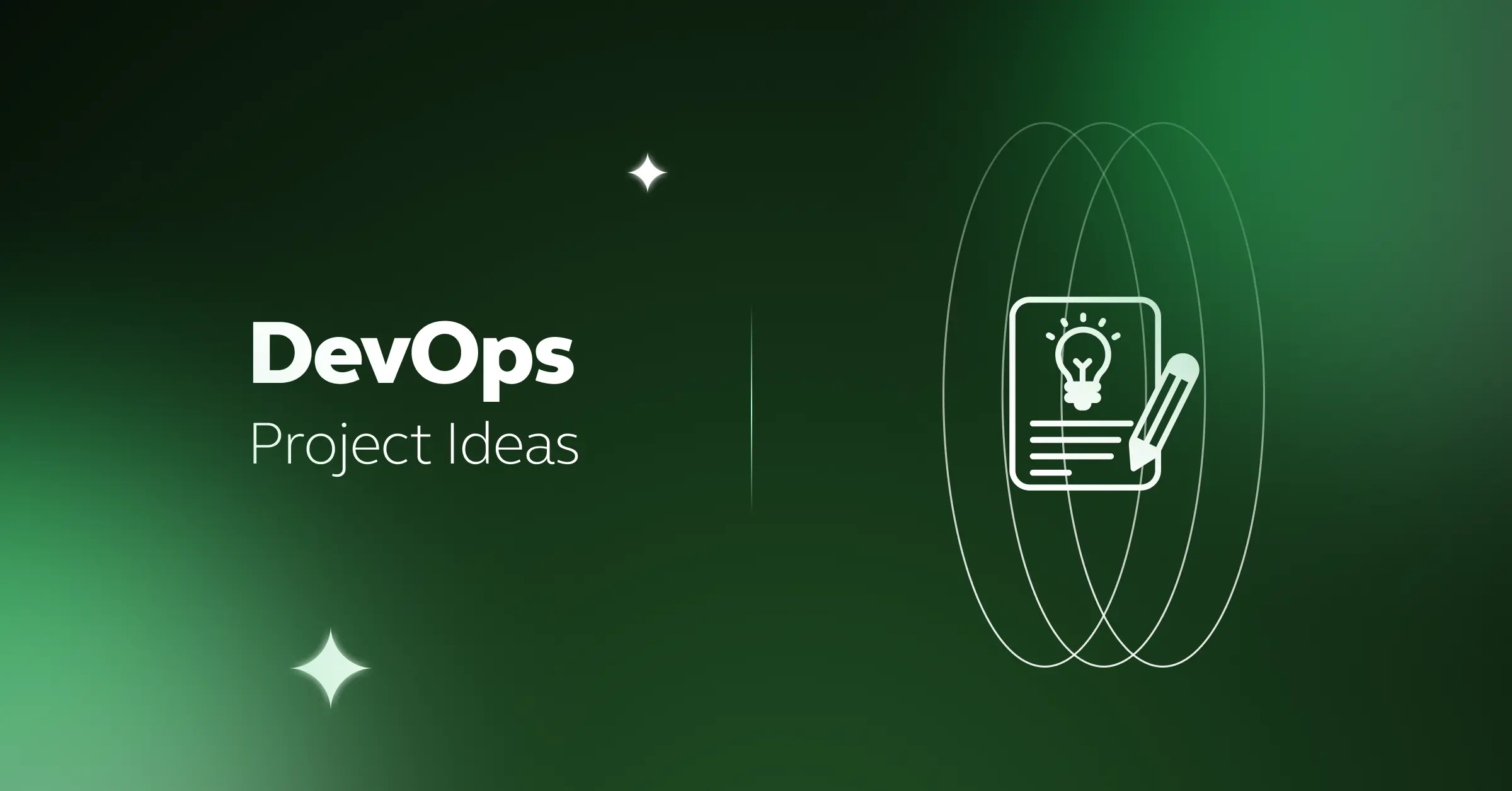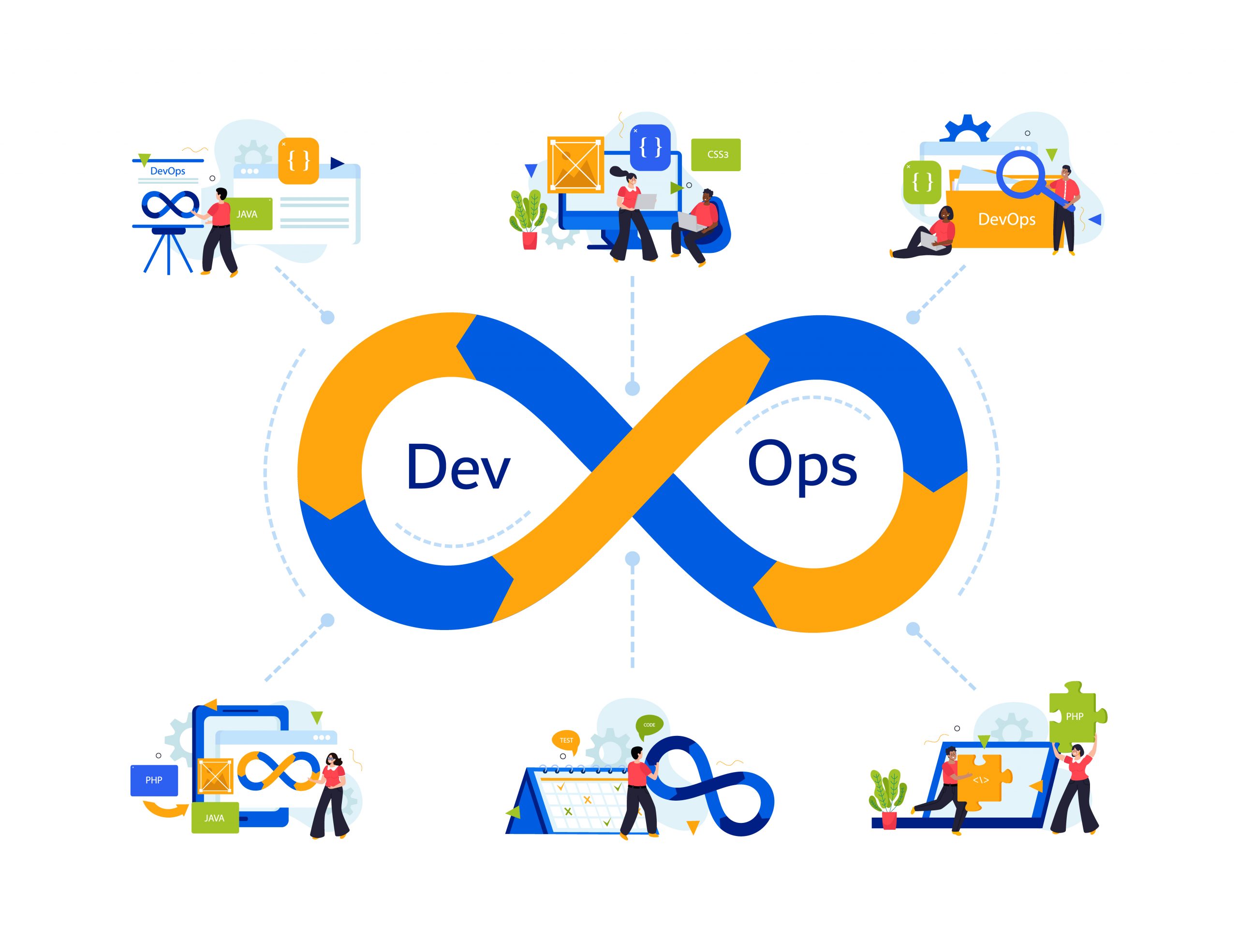![What is DevOps? A Comprehensive Guide [2025] 1 Post thumbnail](https://www.guvi.in/blog/wp-content/uploads/2025/01/What-is-Devops_.png)
What is DevOps? A Comprehensive Guide [2025]
Feb 28, 2025 4 Min Read 3056 Views
(Last Updated)
DevOps is a revolutionary approach in software development that bridges the gap between development (Dev) and operations (Ops) teams, aiming to create a seamless workflow for faster and more reliable software delivery.
Traditionally, development and operations worked in silos, leading to delays, inefficiencies, and misaligned goals. DevOps solves this by fostering collaboration, leveraging automation, and emphasizing continuous feedback. It has become an essential methodology in modern IT practices, especially in environments requiring agility and rapid innovation.
And I will be helping you learn exactly what is DevOps through this comprehensive article that covers pretty much everything, let’s get started!
Table of contents
- What is DevOps?
- How DevOps Works
- Key Principles of DevOps
- Right Skills for DevOps
- DevOps Tools and Features:
- Applications of DevOps
- Benefits of DevOps
- A) Faster Delivery
- B) Improved Quality
- C) Scalability
- D) Enhanced Collaboration
- E) Cost Efficiency
- Roles in DevOps
- Concluding Thoughts…
- FAQs
- What is DevOps in simple words?
- Is DevOps need coding?
- What is the role of DevOps?
- Is SQL needed for DevOps?
- What is CI and CD in DevOps?
What is DevOps?
At its core, DevOps is both a cultural shift and a set of practices and tools that enable organizations to deliver applications and services rapidly. Unlike traditional methods where development and operations operate independently, DevOps integrates these functions to ensure smooth and efficient software lifecycles. This integration enhances collaboration, reduces time-to-market, and improves product quality.
![What is DevOps? A Comprehensive Guide [2025] 2 What is DevOps](https://www.guvi.in/blog/wp-content/uploads/2025/02/What-is-DevOps_.jpg)
Key aspects of DevOps include:
- Collaboration: Encouraging communication and teamwork across traditionally siloed teams.
- Automation: Streamlining repetitive tasks like testing, building, and deployment.
- Continuous Delivery: Enabling frequent and reliable releases.
- Resilience: Building robust systems that recover quickly from failures.
How DevOps Works
DevOps works by integrating people, processes, and tools to create a unified, automated, and collaborative approach to software development and operations. Here’s a detailed breakdown of the key elements as we will only be able to understand what is devops by learning its key elements:
![What is DevOps? A Comprehensive Guide [2025] 3 How DevOps Works](https://www.guvi.in/blog/wp-content/uploads/2025/02/How-DevOps-Works.jpg)
- Automation
Automation underpins DevOps, eliminating manual errors and speeding up repetitive tasks:- Code Integration: Using Continuous Integration (CI) tools like Jenkins to merge and test code frequently.
- Infrastructure as Code (IaC): Tools like Terraform and AWS CloudFormation automate infrastructure provisioning and management.
- Testing and Deployment: Automated testing pipelines ensure code quality, while Continuous Delivery (CD) tools enable consistent deployment to production.
- Collaboration
Collaboration between developers, QA teams, and operations ensures shared goals and responsibilities:- ChatOps: Platforms like Slack and Microsoft Teams integrate with DevOps tools to facilitate communication and automate notifications.
- Shared Metrics: Unified dashboards from tools like Grafana ensure all teams have real-time insights into application performance.
- Feedback Loops
Feedback loops are integral to learning and improvement:- Real-time monitoring with Prometheus or New Relic ensures that application issues are identified and addressed quickly.
- User feedback from production is looped into future iterations, creating a cycle of continuous improvement.
- Microservices Architecture
DevOps supports breaking applications into smaller, independently deployable units, managed using containerization with Docker and orchestration through Kubernetes.
Key Principles of DevOps
![What is DevOps? A Comprehensive Guide [2025] 4 Key Principles of DevOps](https://www.guvi.in/blog/wp-content/uploads/2025/02/Key-Principles-of-DevOps.jpg)
- Collaboration:
DevOps promotes a unified approach where developers, IT operations, and QA teams share responsibilities. This breaks down traditional silos and aligns goals toward faster and high-quality deliveries. - Automation:
Automating tasks such as testing, configuration, and deployment reduces human error and accelerates processes. DevOps Tools like Jenkins, Ansible, and Docker play pivotal roles in automation. - Continuous Improvement:
Feedback loops from monitoring tools allow teams to identify areas of improvement, fostering a culture of innovation and learning. - Customer-Centric Approach:
Ensures that changes or updates provide immediate and tangible benefits to end-users by focusing on customer feedback.
Right Skills for DevOps
![What is DevOps? A Comprehensive Guide [2025] 5 DevOps Skills](https://www.guvi.in/blog/wp-content/uploads/2025/02/DevOps-Skills.jpg)
| Skill | Description | Why It’s Important |
| Scripting and Coding | Proficiency in languages like Python, Bash, or Ruby for automating DevOps tasks. | Enables efficient creation and management of automated processes. |
| Cloud Platforms | Expertise in AWS, Azure, or GCP for deploying and managing cloud-native applications. | Most DevOps implementations leverage scalable, flexible cloud infrastructure. |
| Containerization | Knowledge of tools like Docker for packaging applications into portable, consistent units. | Ensures smooth deployment across different environments. |
| CI/CD Pipelines | Experience with Jenkins, GitLab, or CircleCI for automating build and release pipelines. | Reduces manual intervention and speeds up software delivery. |
| Monitoring and Logging | Familiarity with tools like Prometheus, Grafana, and ELK for tracking system health. | Helps in early detection of issues and maintaining high availability. |
| Version Control | Expertise in Git for source code management and collaboration. | Ensures efficient tracking of code changes and rollback capabilities. |
| Security (DevSecOps) | Understanding of security practices and tools like Snyk or SonarQube. | Ensures secure code and infrastructure, addressing vulnerabilities early. |
Master DevOps with GUVI’s DevOps Course, designed for beginners and professionals alike, this hands-on program equips you with industry-relevant tools like Docker, Kubernetes, Jenkins, and more, ensuring you’re job-ready in just a few months.
With expert mentorship, live projects, and guaranteed placement support, this course is your gateway to mastering DevOps.
DevOps Tools and Features:
![What is DevOps? A Comprehensive Guide [2025] 6 DevOps Tools](https://www.guvi.in/blog/wp-content/uploads/2025/02/DevOps-Tools.jpg)
| Tool | Category | Features | Use Case |
| Jenkins | CI/CD | Automates building, testing, and deploying software. | CI/CD pipelines for continuous delivery. |
| Docker | Containerization | Packages applications into isolated containers for consistency. | Running microservices and scaling applications. |
| Kubernetes | Container Orchestration | Automates deployment, scaling, and management of containerized applications. | Managing large-scale applications with high availability. |
| Ansible | Configuration Management | Automates infrastructure provisioning and application deployment. | Automating repetitive tasks in server configuration. |
| Terraform | IaC | Enables declarative configuration of infrastructure across cloud platforms. | Simplifying infrastructure setup and updates. |
| Prometheus | Monitoring | Collects metrics, triggers alerts, and visualizes performance data. | Monitoring system health and responding to anomalies. |
| ELK Stack | Logging and Analytics | Comprises Elasticsearch, Logstash, and Kibana for centralized logging and visualization. | Troubleshooting application and infrastructure issues. |
Applications of DevOps
![What is DevOps? A Comprehensive Guide [2025] 7 Applications of DevOps](https://www.guvi.in/blog/wp-content/uploads/2025/02/Applications-of-DevOps.jpg)
- E-commerce
- Use: Continuous updates to improve user experience and ensure scalability during peak seasons.
- Example: Amazon uses DevOps to handle rapid feature deployments and manage high traffic volumes.
- Finance
- Use: Enhances application security and ensures compliance while enabling rapid updates.
- Example: PayPal leverages DevOps for real-time fraud detection and secure transactions.
- Media and Entertainment
- Use: Ensures high availability for streaming services and content delivery.
- Example: Netflix employs DevOps to deliver seamless viewing experiences and innovate quickly.
- Healthcare
- Use: Develops HIPAA-compliant software systems efficiently.
- Example: DevOps helps in the creation of secure and user-friendly patient management systems.
- Government and Public Sector
- Use: Facilitates rapid deployment of citizen-facing applications.
- Example: DevOps enables faster updates to critical services like tax filing platforms.
Benefits of DevOps
A) Faster Delivery
DevOps enables organizations to accelerate their software release cycles through automation and the implementation of Continuous Integration/Continuous Delivery (CI/CD) pipelines. By automating testing and deployment, teams can quickly deliver new features, respond to user feedback, and stay ahead of competitors.
![What is DevOps? A Comprehensive Guide [2025] 8 Benefits of DevOps](https://www.guvi.in/blog/wp-content/uploads/2025/02/Benefits-of-DevOps.jpg)
This approach significantly reduces the time-to-market for innovative software solutions, giving businesses a competitive edge.
B) Improved Quality
Continuous testing is a core principle of DevOps, ensuring that bugs and vulnerabilities are identified and resolved early in the development lifecycle. Automated testing frameworks run checks consistently, maintaining code quality across multiple iterations.
As a result, organizations can release more stable and reliable software with minimal errors, leading to enhanced user satisfaction and trust.
C) Scalability
Infrastructure automation within DevOps supports effortless scaling of resources to meet varying demands. With tools like Terraform and Kubernetes, organizations can dynamically adjust their infrastructure to handle sudden spikes in user activity without experiencing downtime.
This scalability ensures uninterrupted service delivery, even during high-traffic periods, enhancing user experiences and operational efficiency.
D) Enhanced Collaboration
DevOps fosters a culture of collaboration by breaking down traditional silos between development, operations, and quality assurance teams. Through shared goals, integrated workflows, and unified communication platforms, teams work more cohesively, increasing productivity and reducing bottlenecks.
This improved collaboration accelerates project timelines and ensures smoother software delivery.
E) Cost Efficiency
By optimizing resources and automating repetitive tasks, DevOps reduces operational wastage, allowing businesses to achieve greater cost efficiency. Automation not only minimizes the time spent on manual processes but also lowers the chances of costly errors.
Ultimately, this streamlined approach leads to a better return on investment (ROI) for infrastructure and development efforts.
Roles in DevOps
![What is DevOps? A Comprehensive Guide [2025] 9 Roles in DevOps](https://www.guvi.in/blog/wp-content/uploads/2025/02/Roles-in-DevOps.jpg)
| Role | Responsibilities | Skills Required | Average Salary (India) |
| DevOps Engineer | Designs and implements CI/CD pipelines, manages automation tools, and ensures infrastructure scalability. | Expertise in scripting, cloud platforms, and containerization. | ₹6,00,000 to ₹15,00,000 per year |
| Release Manager | Oversees the release process, ensuring smooth transitions between development and production. | Strong project management and collaboration skills. | ₹8,00,000 to ₹18,00,000 per year |
| Site Reliability Engineer (SRE) | Focuses on system reliability, availability, and performance through monitoring and automation. | Advanced skills in monitoring tools and automation. | ₹10,00,000 to ₹20,00,000 per year |
| Cloud Engineer | Manages cloud infrastructure, enabling scalable and secure deployments. | Proficiency in AWS, Azure, or Google Cloud. | ₹7,00,000 to ₹16,00,000 per year |
| Build Engineer | Responsible for automating builds and ensuring the integrity of source code. | Knowledge of build tools like Maven or Gradle. | ₹5,00,000 to ₹12,00,000 per year |
| Security Engineer (DevSecOps) | Integrates security practices into the DevOps lifecycle to identify and mitigate vulnerabilities. | Understanding of application security, encryption, and compliance standards. | ₹8,00,000 to ₹18,00,000 per year |
Concluding Thoughts…
DevOps has revolutionized the way modern software is developed, deployed, and maintained. By fostering collaboration, streamlining workflows, and leveraging cutting-edge tools, DevOps empowers organizations to deliver high-quality software faster, more reliably, and at scale.
Its applications span across industries, driving innovation and operational excellence. With a growing demand for DevOps professionals, mastering the right skills and understanding its intricacies can open doors to rewarding career opportunities.
Hence, I hope this article has set you on your DevOps learning path and if you have any doubts, reach out to us in the comments section below.
FAQs
DevOps is a collaborative approach that integrates development and operations teams to improve software delivery speed, quality, and reliability.
Yes, basic coding skills are often needed in DevOps for scripting, automation, and configuration management.
The role of DevOps is to streamline software development, deployment, and maintenance processes through automation, collaboration, and continuous integration and delivery.
SQL is useful in DevOps for managing databases, monitoring systems, and analyzing logs or metrics.
CI (Continuous Integration) ensures code changes are automatically tested and integrated, while CD (Continuous Delivery) automates deploying applications to production environments.




















![Top High-Paying Non-Coding Jobs in DevOps [2025] 10 Non-Coding Jobs in DevOps](https://www.guvi.in/blog/wp-content/uploads/2023/11/Top-10-Non-Coding-Jobs-in-DevOps.png)









Did you enjoy this article?